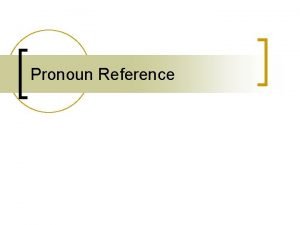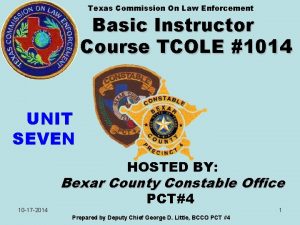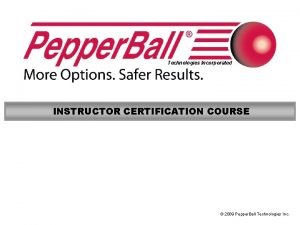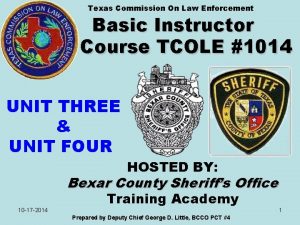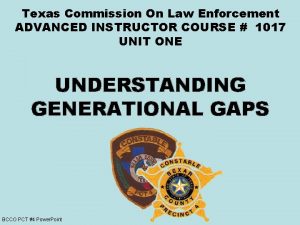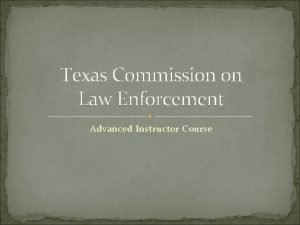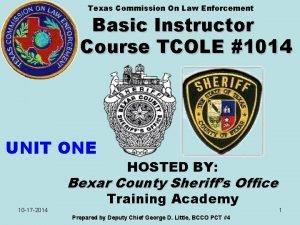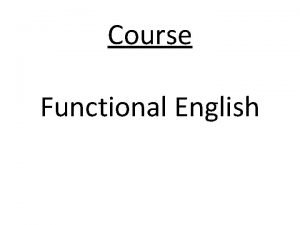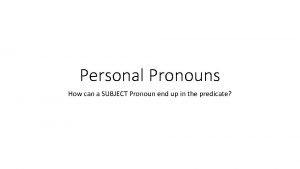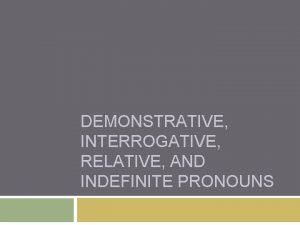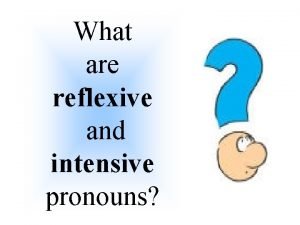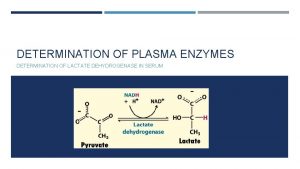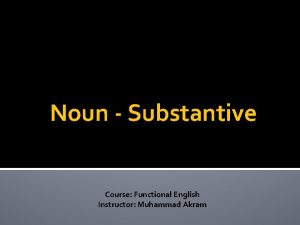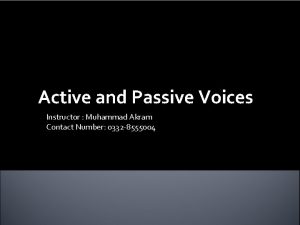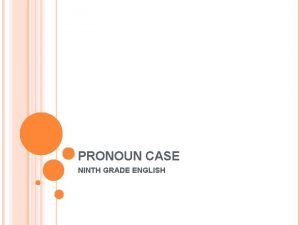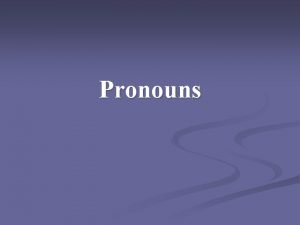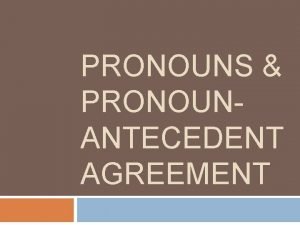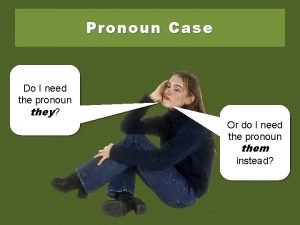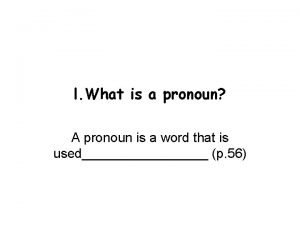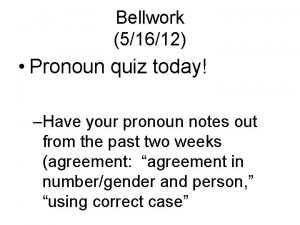Pronoun Course Functional English Instructor Muhammad Akram What




























- Slides: 28

Pronoun Course: Functional English Instructor: Muhammad Akram

What is a Pronoun? �A pronoun can replace a noun or another pronoun. �You use pronouns like he, which, none, and you to make your sentences less cumbersome and less repetitive. he, she, it, they, someone, who

Example �Erik Johnson is a blind mountain climber. (noun) �He is a blind mountain climber. (pronoun)

Types of Pronoun �Personal pronoun �Demonstrative pronoun �Interrogative pronoun �Indefinite pronoun �Relative pronoun �Reflexive pronoun �Intensive pronoun

Personal Pronouns �A personal pronoun refers to a specific person or thing and changes its form to indicate person, number, gender, and case. �Two types of personal pronouns: Subjective Personal Pronouns Objective Personal Pronouns Possessive Personal Pronouns

subjective personal pronoun �A subjective personal pronoun indicates that the pronoun is acting as the subject of the sentence. �The subjective personal pronouns are "I, " "you, " "she, " "it, " "we, " "you, " "they. "

Exercise In the following sentences, each of the highlighted words is a subjective personal pronoun and acts as the subject of the sentence I was glad to find the bus pass in the bottom of the green knapsack. You are surely the strangest child I have ever met. He stole the Jenny’s ring and forced her to live with him. When she was a young woman, she earned her living as a coal miner.

Objective Personal Pronoun �An objective personal pronoun indicates that the pronoun is acting as an object of a verb, compound verb, preposition, or infinitive phrase. �The objective personal pronouns are: me, you, her, him, it, us, you, and them.

Exercise In the following sentences, each of the highlighted words is an objective personal pronoun Seamus stole the Jenny’s ring and forced her to live with him. The objective personal pronoun "her" is the direct object of the verb "forced" and the objective personal pronoun "him" is the object of the preposition "with"

Subject Versus Object

Possessive Personal Pronouns �A possessive pronoun indicates that the pronoun is acting as a marker of possession and defines who owns a particular object or person. �The possessive personal pronouns are mine, yours, hers, his, its, ours, and theirs. Note that possessive personal pronouns are very similar to possessive adjectives like my, her, and their.

Exercise In each of the following sentences, the highlighted word is a possessive personal pronoun � The smallest gift is mine. Here the possessive pronoun "mine" functions as a subject complement. � This is yours. Here too the possessive pronoun "yours" functions as a subject complement.

Demonstrative Pronouns �A demonstrative pronoun points to and identifies a noun or a pronoun. �"This" and "these" refer to things that are nearby either in space or in time, while "that" and "those" refer to things that are farther away in space or time.

Exercise In the following sentences, each of the highlighted words is a demonstrative pronoun �This must not continue. �Here "this" is used as the subject of the compound verb "must not continue. " �This is puny; that is the tree I want. �In this example "this" is used as subject and refers to something close to the speaker. The demonstrative pronoun "that" is also a subject but refers to something farther away from the speaker.


Interrogative Pronouns �An interrogative pronoun is used to ask questions. �The interrogative pronouns are who, whom, which, what and the compounds formed with the suffix ever (whoever, whomever, whichever, and whatever).

Interrogative Pronouns �You will find who, whom, and occasionally which used to refer to people, and which and what used to refer to things and to animals.

Exercise The highlighted word in each of the following sentences is an interrogative pronoun Which wants to see the dentist first? Which is the subject of the sentence. Who wrote the novel Rockbound? Who is the subject of the sentence. Whom do you think we should invite?

Relative Pronouns �You can use a relative pronoun is used to link one phrase or clause to another phrase or clause. The relative pronouns are "who, " "whom, " "that, " and "which“. The compounds "whoever, " "whomever, " and "whichever" are also relative pronouns. �You can use the relative pronouns "who" and "whoever" to refer to the subject of a clause or sentence, and "whom" and "whomever" to refer to the objects of a verb, a verbal or a preposition.

Exercise In each of the following sentences, the highlighted word is a relative pronoun You may invite whomever you like to the party. The candidate who wins the greatest popular vote is not always elected. Whoever broke the window will have to replace it.

Indefinite Pronouns � An indefinite pronoun is a pronoun referring to an identifiable but not specified person or thing. An indefinite pronoun conveys the idea of all, any, none, or some. � � � All Another Anybody Anyone Anything Each Nobody Someone Many

Exercise The highlighted words in the following sentences are indefinite pronouns Many were invited to the lunch but only twelve showed up. The office had been searched and everything was thrown onto the floor. Make sure you give everyone a copy of the amended bylaws.

Reflexive Pronouns �You can use a reflexive pronoun to refer back to the subject of the clause or sentence. �Myself �Yourself �Herself �Himself �Itself �Ourselves �Yourselves �Themselves

Exercise Each of the highlighted words in the following sentences is a reflexive pronoun Diabetics give themselves insulin shots several times a day. The Dean often does the photocopying herself so that the secretaries can do more important work. After the party, I asked myself why I had faxed invitations to everyone in my office building.

Intensive Pronouns �An intensive pronoun is a pronoun used to emphasize its antecedent. Intensive pronouns are identical in form to reflexive pronouns.

Exercise The highlighted words in the following sentences are intensive pronouns �I myself believe that aliens should abduct my sister. �The Prime Minister himself said that he would lower taxes. �They themselves promised to come to the party even though they had a final exam at the same time


Ready for a test? �Good Luck!
 Sabah in arabic
Sabah in arabic Subject pronoun and object pronoun
Subject pronoun and object pronoun Strategic thinking examples
Strategic thinking examples Iugr and sga
Iugr and sga Tiger behavioral adaptations
Tiger behavioral adaptations Discourse example sentence
Discourse example sentence Allahumma salli ala
Allahumma salli ala Tcole instructor course
Tcole instructor course Basic instructor course texas
Basic instructor course texas Basic instructor course #1014
Basic instructor course #1014 Pepperball launcher nomenclature
Pepperball launcher nomenclature Tcole advanced instructor course
Tcole advanced instructor course Basic instructor course texas
Basic instructor course texas Tcole 1014 basic instructor course
Tcole 1014 basic instructor course Marksmanship instructor
Marksmanship instructor Tcole advanced instructor course
Tcole advanced instructor course Tcole advanced instructor course
Tcole advanced instructor course Jrotc marksmanship instructor course online
Jrotc marksmanship instructor course online Basic instructor course #1014
Basic instructor course #1014 Tcole basic instructor course
Tcole basic instructor course Functional english course outline
Functional english course outline Subject pronoun and object pronoun
Subject pronoun and object pronoun Interrogative and relative pronoun
Interrogative and relative pronoun Personal pronouns complement
Personal pronouns complement Interrogative pronouns and relative pronouns
Interrogative pronouns and relative pronouns Reflexive pronouns
Reflexive pronouns Band and loop space maintainer advantages
Band and loop space maintainer advantages Functional and non functional plasma enzymes
Functional and non functional plasma enzymes Plasma enzyme
Plasma enzyme

